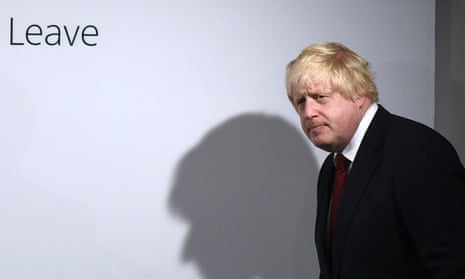I was one of 150 academic economists, including 12 Nobel prize winners, who warned of the risks of Britain leaving Europe: recession, job losses, higher costs of living, lower investment, lower innovation and worsening public finances.
We did this not because we were part of Project Fear, but because of our understanding of the problems in the UK’s economy, and their real causes. These include low investment, weak productivity and high inequality, problems that will not be solved by a Brexit.
Since the seismic events of Friday morning, there has been a lot of political manoeuvring and wishful thinking. But amid the chaos, there has been less serious refection on how the UK addresses these long-term challenges.
The visceral nature of the referendum campaign showed just how many voters felt the effects of an economic system that doesn’t work for them. But if the leave campaigners were right about how many felt about life and work in Britain today, they were wrong about the causes, and wrong about the solutions. Blaming the EU was a category error. In truth, the blame lies closer to home.
Austerity – which has affected the living standards of many working people – was not imposed by the EU, but was a choice by the current government. When public finances are tight, the economic contribution made by migrants ought to be welcomed. But the climate of cuts allowed migrants to be blamed and Britain’s contribution to the EU – at £8bn, just 1.2% of public expenditure and outweighed by our economic gains from membership – to take on disproportionate significance.
Britain’s politicians have failed to provide a vision about their nation’s future, or a sense of direction about where its prosperity will come from and how it can benefit all. Without clear political leadership, business won’t invest. Without investment, productivity is low; jobs are insecure. Where is the leadership for green growth, for example, which can provide new opportunities for the entire economy? And where was the positive story on the benefits the EU has brought, with the UK the fastest-growing economy in the G7 since it became a member?
These problems will now be harder, not easier, to solve outside the EU. Let me give three examples.
First, research. Collaboration across the continent has made Europe a powerhouse for science. Britain gained disproportionately from EU research funding. The loss of this funding will creates a real gap, making our low productivity even harder to resolve.
Second, insecurity and equality. As Frances O’Grady, the head of the TUC, has said, the EU has been good for workers, securing rights to paid holidays, maternity entitlements and equal rights for part-time workers. When it was claimed that Brexit would make us free, we should understand who this freedom is for. We would be free from many of the checks and balances on the power of capital over labour, and on other areas such as environmental damage. To build a healthier, more inclusive capitalism and address the economic insecurity that many feel, a post-Brexit Britain will need to strengthen, not weaken, the rights won by unions.
The third challenge is green growth. EU legislation has improved the quality of British beaches and the air we breathe. But green policies will also form the next industrial wave that will lead to future prosperity. Today green spending is an option for governments and businesses; soon it will be a necessity. Those who have chosen to invest will be in a strong position. The EU has led on green energy, and Britain could have played a big role. An Imperial College study estimates the benefits of a fully integrated European energy system at around £100bn a year by 2030. This was surely a prize worth working together to achieve, and one that would have rewarded rather than penalised future generations. Outside the EU, Britain must find new ways to build alliances and cooperate across borders to avoid being left behind.
The referendum shows how far Britain’s economic failures have divided the country, but leaving the EU only makes them harder to address. Now the responsibility falls on those who poured so much energy and political capital into arguing for Brexit to make sure that future generations suffer as little as possible. We are already hearing from lead Brexiters that their promises on using the released EU funds for the NHS don’t hold. Rather than continuing down this terrible slope, Britain must fight back, with a positive, forward-looking vision of the future – an innovation-led, investment-driven growth strategy, aimed in a green direction, with an explicit focus on reducing the inequalities that have scarred Britain for too long. And work closely with Europe – by any means necessary – in doing so.
But this assumes that in the process of harming our own economy we haven’t fatally undermined Europe’s economy too. Because if it wasn’t clear enough before the vote, it is clear now: we need our European partners, and our European partners need us too.

